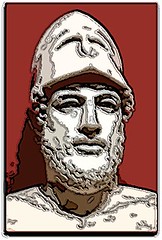| 11198164163 | China's Scholar-Gentry Class | lived luxuriously, benefited from wealth and from power and prestige, located in both rural and urban areas, had multi-storied houses, fine silk clothes etc |  | 0 |
| 11198164164 | Wang Mang | a high court official of the Han Dynasty who usurped the emperor's throne in 8 c.e. and immediately launched a series of startling reforms |  | 1 |
| 11198164165 | Ge Hong | person born in an aristocratic family who studied Daoism seeing the disorder and disturbances in Chinese daily life, later held several military positions, yearned for solitary and interior life and spend his latest years thinking about legalism Daoism and Confucianism | 2 | |
| 11198164166 | Yellow Turban Rebellion | A peasant revolt starting in 184 c.e. named for the yellow scarves the peasants wore on their head, unifying ideology of Daoism, goal of "Great Peace" a golden age of equality and harmony |  | 3 |
| 11198164167 | Varna | four social classes in India, relating to Caste system |  | 4 |
| 11198164168 | Jati | divisions within the varna, groups of similar people, sub-caste |  | 5 |
| 11198164169 | Ritual Purity | In Indian social practice, the idea that members of higher castes must adhere to strict regulations limiting or forbidding their contact with objects and members of lower castes to preserve their own caste standing and their relationship with the gods. |  | 6 |
| 11198164170 | Greek and Roman Slavery | In the Greek and Roman world, slaves were captives from war and piracy (and their descendants), abandoned children, and the victims of long-distance trade; manumission was common. Among the Greeks, household service was the most common form of slavery, but in parts of the Roman state, thousands of slaves were employed under brutal conditions in the mines and on great plantations. |  | 7 |
| 11198164171 | Spartacus | A Roman gladiator who led the most serious slave revolt in Roman history from 73 to 71 B.C.E.) |  | 8 |
| 11198164172 | The Three obediences | In Chinese Confucian thought, the notion that a woman is permanently subordinate to male control: first to her father, then to her husband, and finally to her son |  | 9 |
| 11198164173 | Patriarchy | a form of social organization in which a male is the family head and title is traced through the male line, |  | 10 |
| 11198164174 | Empress Wu | The only female "emperor" in Chinese history (r. 690-705 C.E.), Empress Wu patronized scholarship, worked to elevate the position of women, and provoked a backlash of Confucian misogynist invective. |  | 11 |
| 11198164175 | Aspasia | A foreign woman resident in Athens (ca. 470-400 B.C.E.) and partner of the statesman Pericles who was famed for her learning and wit. |  | 12 |
| 11198164176 | Pericles | A prominent and influential statesman of ancient Athens (ca. 495-429 B.C.E.), he presided over Athens's Golden Age |  | 13 |
| 11198164177 | Helots | The dependent, semi-enslaved class of ancient Sparta whose social discontent prompted the militarization of Spartan society |  | 14 |
AP World History Strayer Chapter 5 Flashcards
Primary tabs
Need Help?
We hope your visit has been a productive one. If you're having any problems, or would like to give some feedback, we'd love to hear from you.
For general help, questions, and suggestions, try our dedicated support forums.
If you need to contact the Course-Notes.Org web experience team, please use our contact form.
Need Notes?
While we strive to provide the most comprehensive notes for as many high school textbooks as possible, there are certainly going to be some that we miss. Drop us a note and let us know which textbooks you need. Be sure to include which edition of the textbook you are using! If we see enough demand, we'll do whatever we can to get those notes up on the site for you!

